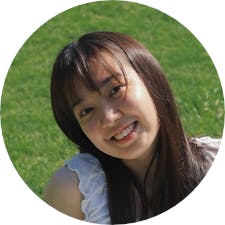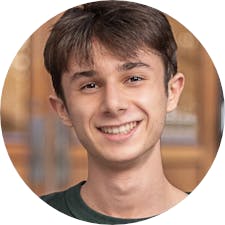Content warning: This article contains descriptions of violence and discussions of death.
Early Saturday morning, Hamas, the militant group that controls much of the Gaza Strip, launched an attack on several cities across southern and central Israel. Hamas, which is designated as a terrorist organization by multiple countries, broke through the fencing that surrounds Gaza into Israeli territory and launched a wide-reaching assault by land, air and sea, the Associated Press reported.
The Israeli military has retaliated with continual strikes on Gaza and has blocked deliveries of food, water, fuel and electricity. This escalation of Israel’s decades-long blockade, which security analysts predict will be followed by a ground invasion of Gaza, will not pause for humanitarian aid until the release of the approximately 150 hostages captured by Hamas during its attack, Israeli officials have said.
According to the Associated Press, the recent Hamas terrorist attacks and Israeli airstrikes have killed more than 3,200 people, primarily civilians. The violence, students told The Herald, has reverberated through campus, leading students to seek community and space to mourn.
On Friday morning, the Israeli military also ordered the evacuation of the approximately 1.1 million Palestinians currently living in northern Gaza. A United Nations spokesperson has called the evacuation order “impossible” and warned of “devastating humanitarian consequences.”
“With this weekend’s horrific and devastating attacks by Hamas on Israel and the tragic loss of life that has ensued — including and especially the impact on civilians in both Israel and Gaza — my thoughts are with the individuals and families most directly impacted by the violence and those who remain in fear as the conflict persists,” President Christina Paxson P’19 P’MD’20 wrote to the Brown community in an email Tuesday afternoon.
“We began with outreach to students with connections to the region and will continue to support these students for as long as needed,” she wrote.
The violence in Israel and Gaza this week has profoundly impacted many Brown community members.
Gidget Rosen ’24 woke up on Saturday morning to discover the extent of the attack on Israel. Her first instinct was to text everyone she knew in the country. “I wanted to know that people were okay,” she said.
“I have family in Gaza, and multiple members of my extended family have died in the past few days,” wrote one student of Palestinian descent, who wished to remain anonymous for safety concerns, in a message to The Herald. “Hearing them talk about it makes me realize how familiar death is to them — they seem so used to it.”
“The ones who are still alive have had their homes destroyed, they have no food and no water, and nowhere to go. It is incomprehensible,” they added.
Amitai Nelkin ’25 was observing Simchat Torah — a holiday during which many Jews do not use electronics — over the weekend. News of the attacks slowly reached him by word of mouth, but “there's really no way that we could have understood the horrors that had occurred,” he said.
“First you hear what happened,” he added. “And then over the next few days, you feel what happened.”
“At first I didn’t think too much of it. Rocket attacks are unfortunately something we are accustomed to,” wrote an Israeli student, who wished to remain anonymous for safety reasons, in a message to The Herald. “But when the videos of Hamas terrorists brutalizing Israeli civilians started circulating, I started having panic attacks and just broke down. I couldn’t process what I was seeing.”
Brown-RISD Hillel and the Rohr Chabad House issued a joint statement in an email Sunday night in which they called for a vigil on the steps of the Stephen Robert ’62 Campus Center Wednesday afternoon.
During the vigil, religious leaders from the Jewish community gave speeches and students shared testimonies about how they are coping with the death of civilians. Paxson also spoke at the event and offered a prayer for peace in English and Hebrew.
“We wanted to respond to it not as this type of Jew or that type of Jew, but as a Jewish community,” Hillel Rabbi Josh Bolton said of the joint Chabad-Hillel event. “We wanted to create this space for people to gather, to reflect, to cry, to see one another.”
On Thursday evening, Brown Students for Justice in Palestine hosted a vigil on the Main Green for the lives lost in this week’s violence. Students prayed, shared personal testimonies, gave speeches and lit candles on the Faunce steps.
“I express my deep concern for Gaza, for the Palestinians who endure life under occupation and apartheid,” an anonymous Palestinian student wrote in a statement shared by organizers at the vigil. “I also reserve a place in my heart and mind for the Jewish and Israeli lives that have been lost, as well as our Jewish friends who are in mourning.”
Multiple human rights organizations, as well as an independent human rights expert commissioned by the United Nations, have published reports stating that the Israeli government’s treatment of Palestinians amounts to “apartheid.”
“If Palestinians had to hold vigils every time our people were massacred, we would be bankrupt from buying candles,” said Hisham Awartani ’25, a Palestinian student who was raised in the West Bank, in his speech at the vigil. “There is no respite for us.”
Other Palestinian students on campus said at the vigil and in interviews with The Herald that they are struggling to wrap their minds around this new wave of violence.
“I grew up with the siege (of Gaza), as they say, but this was a whole new dimension,” another Palestinian student from the West Bank, who wished to remain anonymous for safety reasons, told The Herald.
“It was gut-wrenching, what is happening,” the student said of this week’s violence.
Citing safety reasons, Israel has blockaded Gaza since 2005, which has restricted trade and the ability of Palestinians to exit and enter the territory, according to UNICEF.
Nelkin told The Herald that one of his friends died in the Hamas attack on a music festival in southern Israel that killed an estimated 260 people. “They were celebrating life and it was taken from them,” he said.
“This was a truly horrific event and nobody wins,” Nelkin said.
In recent days, students have both sought and created space to grieve with one another.
“Palestinian and Arab students, in general, we've closed ranks and supported one another very deeply and profoundly during this time,” the second Palestinian student said. “There's just a collective mourning and grieving, but also, there's an inevitable suspense for what's to come.”
Ben Piekarz ’24 spoke at a vigil hosted by Brown Students for Israel Tuesday evening and shared personal stories of how his family and friends have been impacted by the attacks.
“Speaking to family in Israel constantly throughout this (has been) just devastating,” he said. Sharing their experiences at the vigil is “a good way for me to try to get those stories out there and feel like I'm playing my part.”
Rita Feder ’24, who has family in Israel, said she struggled to find a mourning space on campus that felt right for her.
“I was and continued to be scared shitless for my friends and family, and was and continued to be scared shitless for what Palestinians have been for the past few days and are going to be facing,” she said. “And there wasn't really a space where both of those things could be true.”
Feder posted these sentiments on Instagram and invited students to join her in a room in Page-Robinson Hall. Forty people showed up, she said, and “we all sat together and we cried.” Attendees then held a small vigil and said a Jewish prayer for the dead for both Palestinians and Israelis.
“I needed a community,” Feder said. “I felt very alone.”
Several students told The Herald that they have struggled to focus on schoolwork as they reckon with the aftermath of the attacks.
“I haven’t been able to focus and I haven’t been able to study. I am glued to the news and social media platforms,” the anonymous Israeli student wrote. “Midterms are the last thing on my mind right now.”
Rosen said that she has leaned on her Jewish friends for support, and has sought out community at Chabad, Hillel and Brown Students for Israel events.
“I see people everywhere that I know I can go to,” Rosen said. “Just knowing that you have that support is really important, and at the end of the day is what matters.”
“I am very inspired by student leadership, and the way in which students have mobilized to take care of one another,” said Bolton, the Hillel rabbi.
In her Tuesday email, Paxson invited the community to seek “guidance and support” from University resources, including Student Support Services, the Global Brown Center for International Students, the Office of the Chaplains and Religious Life, Counseling and Psychological Services, the Employee Assistance Program and the Office of International Student and Scholar Services.
Vice President for Campus Life and Student Services Eric Estes shared additional support resources in an email sent to the Brown community Tuesday evening, including resources for students, faculty and staff and “reporting resources for the Brown community.”

Kathy Wang was the senior editor of community of The Brown Daily Herald's 134th Editorial Board. She previously covered student government and international student life as a University News editor. When she's not at The Herald, you can find her watching cooking videos or writing creative nonfiction.

Sam Levine is a University News editor from Brooklyn, New York covering on-campus activism. He is a senior concentrating in International and Public Affairs.





